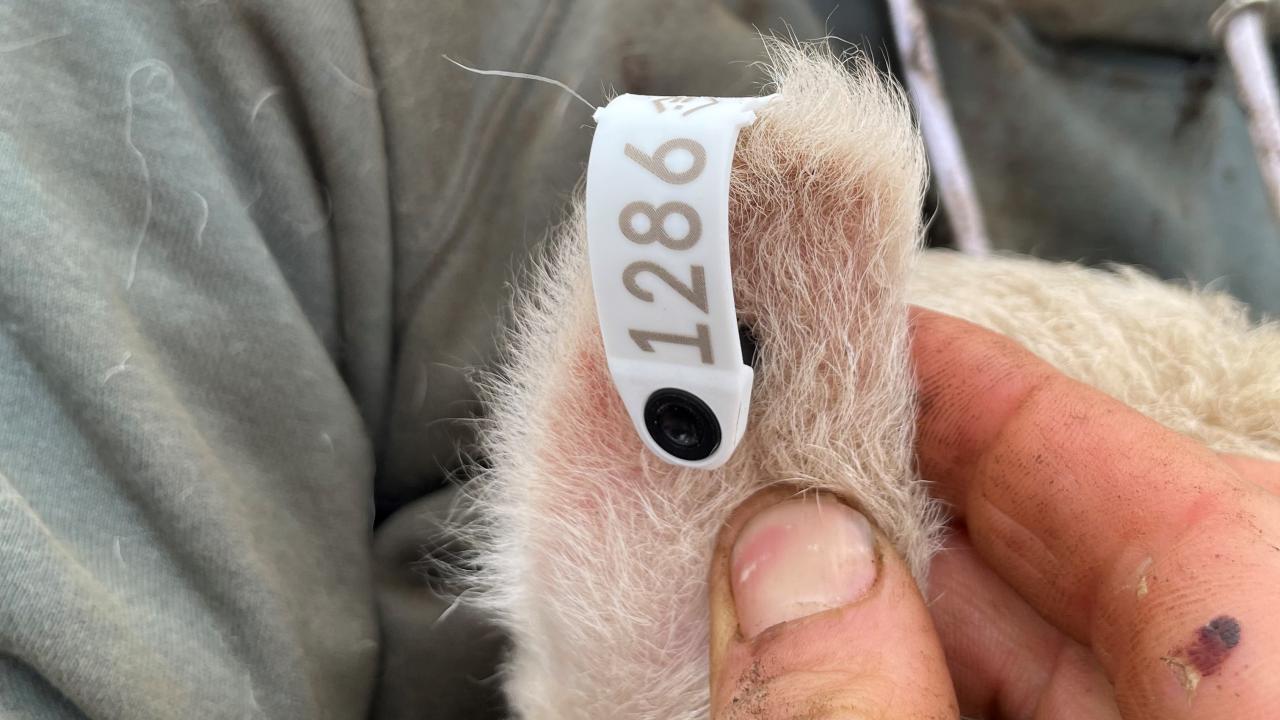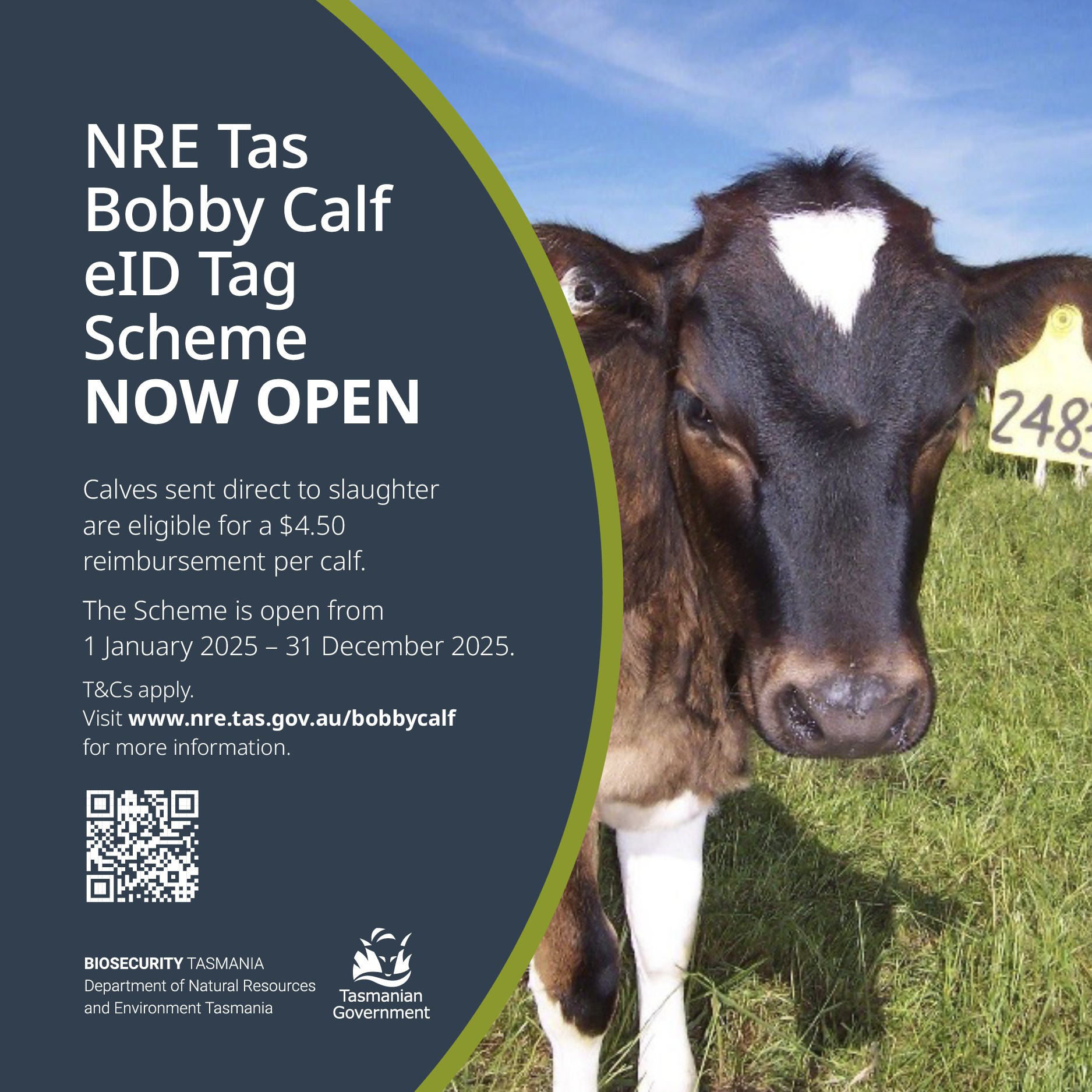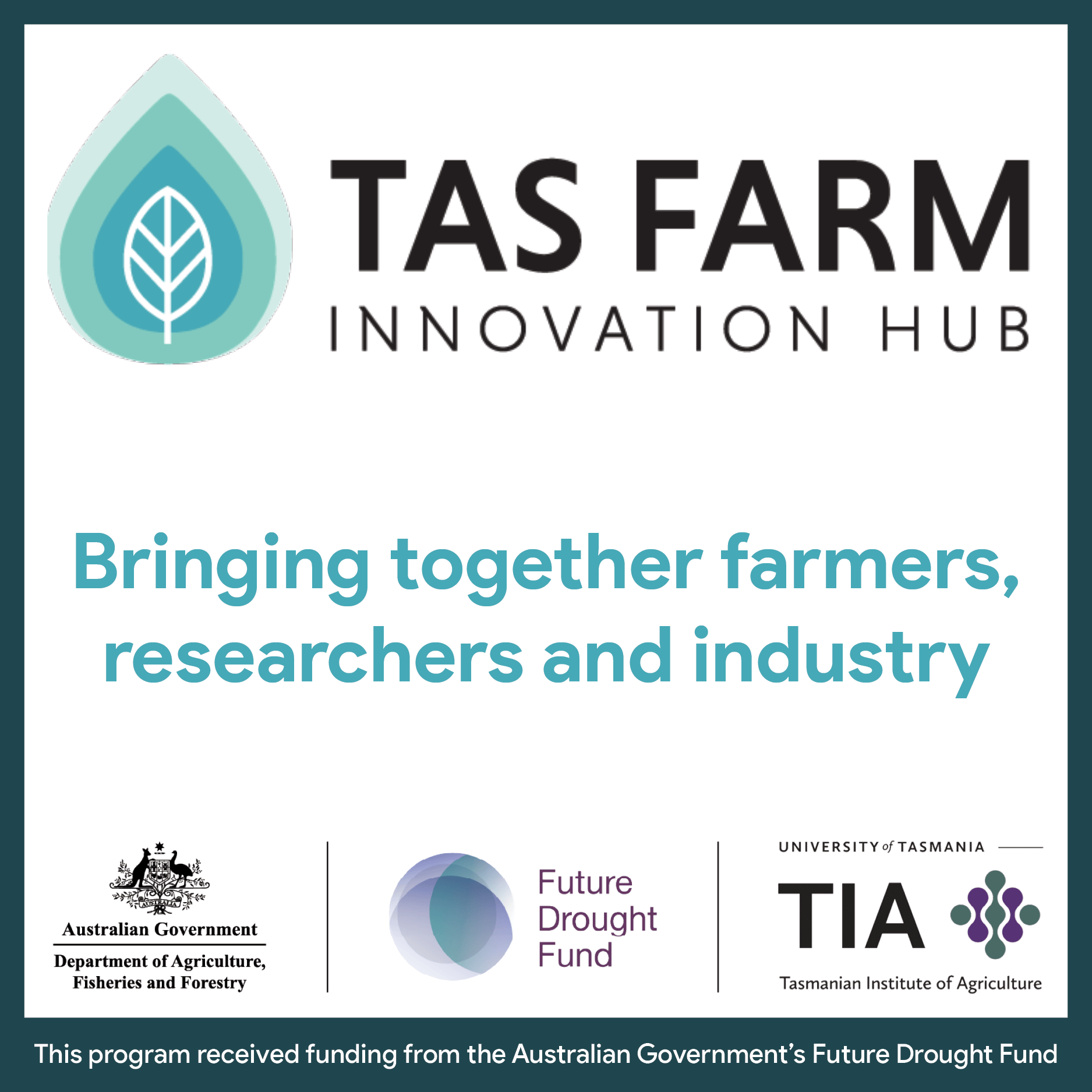No compliance officers policing eID tagging requirements

The Department of Natural Resources and Environment (NRE Tas) has no dedicated compliance officers to enforce mandatory electronic identification (eID) regulations, despite having been in place since the start of the year.
Sheep and goats born on or after January 1, 2025 in Tasmania must have an eID tag before leaving their birth property.
As of 2027, the eID requirements will be extended to all sheep and goats.
“Like any new reform or major change, the traceability reform’s initial focus has been on education with industry stakeholders, and we have had dedicated resources to do this,” an NRE spokesperson said.
“Education is one component of compliance and the Department’s Biosecurity Operations Branch has been undertaking compliance activities within the supply chain.
“The next phase in the traceability reforms is now recruiting two education and compliance officers to specialise solely in traceability compliance.
“Recruitment of these officers is nearly finalised, and it’s expected these staff will commence work in early September.”
When asked what specific compliance activities were being undertaken, NRE said that “education is one component of compliance which has been the initial focus”.
Roger Bartels has sheep at his Bothwell property and says that he believes there is no one from NRE checking to see if the new regulations are being adhered to.
“You’d think that they would have people making sure that all of these newborn sheep are being tagged,” Mr Bartels said.
“I follow the rules, but just because I do doesn’t mean that everyone else does.
“Who knows whether all of these people selling lambs and kids on Facebook Marketplace or elsewhere online have been tagged?
“It’s hard to keep up if no one is policing it.”
Only eID tags accredited by Meat & Livestock Australia subsidiary Integrity Systems can be used on sheep and goats.
“Sheep and goat tags are subsidised at the point of sale, with manufacturers being paid the difference between the subsidised price charged and their normal tag price.
“This means sheep and goat tags purchased by producers from the tag manufacturers are reduced by $2 per tag compared to the normal sale price.
“Goat leg bands are subsidised by $4 per leg band.”
Wool Solutions co-director Alistair Calvert said while he understood some of the pushback from producers around the cost of the tags, he believed the new regulations were necessary.
“In this day and age, with the risk of any exotic animal diseases that may present themselves, we need to be in the best position to track that,” Mr Calvert said.
“There has been much reported about foot-and-mouth disease in Indonesia and it’s only a matter of time before we see it in Australia.
“We need to be positioned to be able to best manage that and this is the main driver for mandatory tagging.
“It’s been forced upon producers, but if there were an outbreak and we didn’t have these tools in place, it would have a far bigger financial impact on producers.”
Mr Calvert said an increase in productivity for farmers could be an unintended benefit of the new regulations.
“As a wool-growing enterprise, you could electronically track fleece weights and microns.
“The same could be said for fat lamb operations in terms of tracking early growth rates and other things.
“The tags are a cost that people probably didn’t want to absorb, but you can utilise that tool to be productive.”




Add new comment